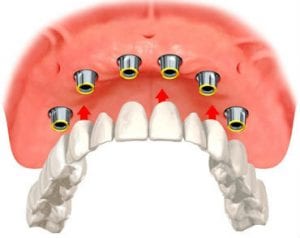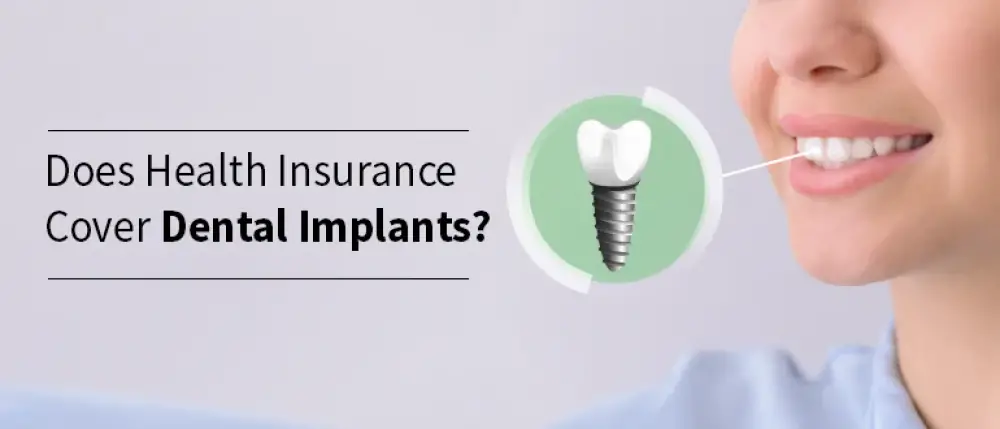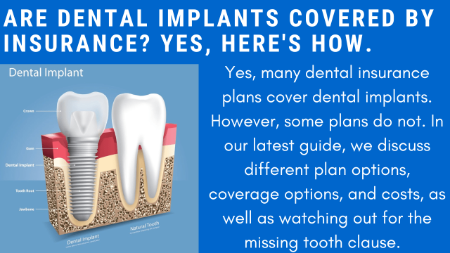Does Health Insurance Cover Dental Implants? Find Out Now!
Does Health Insurance Cover Dental Implants? Health insurance typically does not cover dental implants as they are considered cosmetic procedures. If you require dental implants, you may need to explore alternative payment options.
When looking for coverage for dental implants through your health insurance, it’s important to note that most plans do not include these procedures. Dental implants are often considered cosmetic rather than medically necessary, leading insurance companies to exclude them from coverage.
However, there may be exceptions in cases of severe injury where health insurance could cover a portion of the costs. It’s crucial to understand your policy and explore other financial options for dental implant procedures.
Health Insurance Basics
Before we discuss whether health insurance covers dental implants, it’s essential to grasp the fundamental aspects of health insurance. Understanding the coverage areas and limitations is vital to making informed decisions about dental implant procedures.
Understanding Health Insurance
Health insurance is designed to help individuals cover the costs of medical and dental services. It includes various plans and coverage options to cater to different healthcare needs.
Typical Coverage Areas
Health insurance policies typically cover essential medical services, such as doctor’s visits, hospital stays, prescription medications, and some preventive care measures. Some plans also provide coverage for specific dental procedures, including primary dental care, such as cleanings, fillings, and extractions.
Limitations In Coverage
However, there are limitations regarding coverage for dental implants. Many health insurance plans consider dental implants to be cosmetic procedures; therefore, they may not be covered under standard insurance policies. It’s essential to review the specific details of your insurance policy to understand the extent of coverage for dental implant procedures.
Dental Implants And Insurance
Many people wonder if their health insurance will cover dental implants, an increasingly popular option for replacing missing teeth. Understanding the relationship between dental implants and insurance is crucial for individuals seeking this restorative treatment.
Determining Coverage Eligibility
- Check your insurance policy details to determine if dental implants are covered.
- Some plans may cover a portion of the cost, while others may exclude coverage altogether.
- Verify if any specific criteria must be met to be eligible for coverage.
Factors Influencing Coverage
- Insurance companies often consider dental implants as a cosmetic procedure.
- Coverage may be influenced by the reason for needing the implant, such as trauma or medical necessity.
- Individual policies and providers may have varying guidelines for implant coverage.
Insurance Plans And Implant Coverage
| Insurance Provider | Implant Coverage |
|---|---|
| Provider A | Partial coverage for specific cases. |
| Provider B | There is no coverage for cosmetic implants. |
| Provider C | Coverage is based on medical necessity. |
Challenges And Considerations
When it comes to health insurance coverage for dental implants, there are challenges and considerations to keep in mind. Some insurance companies may not cover dental implants as they are often considered cosmetic rather than medically necessary procedures. It’s essential to check with your insurance provider to understand their specific coverage and limitations.
Cosmetic Vs. Medical Necessity
One of the challenges to consider when thinking about whether health insurance covers dental implants is the distinction between cosmetic procedures and those deemed medically necessary. Dental implants are often seen as a cosmetic procedure since they involve replacing missing teeth with artificial ones to enhance the appearance of one’s smile. Cosmetic procedures are typically not covered by health insurance, which means you may have to rely on dental insurance instead. However, in some cases, dental implants can be considered medically necessary, especially if they are needed to restore proper oral function or prevent further health issues.
Costs And Out-of-pocket Expenses
The cost of dental implants can be a significant consideration when it comes to insurance coverage. Dental implants are generally expensive, with the total cost depending on several factors, including the number of implants needed, the complexity of the case, and the location of the dental facility. Most health insurance plans do not cover the entire cost of dental implants, leaving you responsible for paying a portion out-of-pocket. It’s essential to check your health insurance policy to understand what portion, if any, of the dental implant cost may be covered. Additionally, you should also consider other potential expenses, such as consultation fees, x-rays, bone grafting, and post-implant maintenance.
Medical Insurance Vs. Dental Insurance
Understanding the difference between medical insurance and dental insurance is crucial when thinking about coverage for dental implants. Medical insurance primarily focuses on treatments related to general health issues, while dental insurance is specifically designed to cover oral health care. As a result, dental insurance is more likely to provide coverage for dental implants, although it may still be limited to certain situations or conditions. On the other hand, medical insurance may only offer coverage for dental implants if they are considered medically necessary due to underlying health problems or trauma. It is essential to review the specific coverage details of your insurance policies to determine if dental implants are covered and under which insurance category they fall.

Credit: cheekdental.com
Options For Coverage
When considering dental implants, exploring different coverage options is crucial in managing associated costs. Various health insurance plans and dental coverage options can impact the expenses of dental implant procedures.
Traditional Health Insurance Plans
Traditional health insurance plans often provide coverage for significant medical needs but may not always include dental implant procedures. While some comprehensive health insurance policies cover certain aspects of dental implants, they may have limitations and exclusions. It’s essential to review the specific details of each policy to determine the extent of coverage for dental implants.
Specialized Dental Insurance Plans
Specialized dental insurance plans are designed to focus specifically on dental care, including procedures like dental implants. These plans can offer more comprehensive coverage for dental implant surgeries and related treatments. However, it is essential to carefully assess the scope and limitations of these plans to ensure the specific requirements of dental implant procedures are covered.
Supplemental Coverage Options
Supplemental coverage options, such as dental discount plans or supplemental dental insurance, can complement traditional health insurance or specialized dental plans by providing additional financial assistance for dental implants. These options may help reduce out-of-pocket costs associated with dental implant procedures, making them a valuable consideration for individuals seeking comprehensive coverage.
In summary, understanding the coverage options, including traditional health insurance plans, specialized dental insurance plans, and supplemental coverage options, is essential to determine the extent of financial assistance available for dental implant procedures.
Navigating Insurance Policies
Understanding the specifics of your health insurance policy is crucial when considering coverage for dental implants.
Check for any exclusions related to dental procedures in your insurance policy to determine coverage for dental implants.
If your insurance denies coverage for dental implants, you can appeal the decision to secure the benefits you potentially need.

Credit: www.careinsurance.com
Alternatives And Financing
When it comes to dental implants, cost is a significant consideration for many individuals. Fortunately, there are various alternatives and financing options available to help make this valuable dental procedure more accessible.
Other Financial Assistance Programs
For individuals seeking financial assistance for dental implants, there are alternative programs to explore. Some community health centers and nonprofit organizations offer dental care at reduced costs or for free. Additionally, dental schools and teaching hospitals may provide discounted dental services, including implants, as part of their training programs.
Payment Plans And Financing
Payment plans and financing options are often available through dental offices and third-party financing companies. Many dental practices offer in-house payment plans that allow patients to spread the cost of their dental implants over some time, making the treatment more manageable. Third-party financing companies, such as CareCredit, also provide healthcare financing specifically for dental procedures, including implants.
Tax Implications
Individuals considering dental implants must be aware of the potential tax implications. In some cases, dental implants may be considered tax-deductible as medical expenses. As such, individuals should consult with a tax professional to understand the specific tax implications related to their dental implant procedure.

Credit: myfamilylifeinsurance.com
Frequently Asked Questions
What Is The Best Does Health Insurance Cover Dental Implants?
The best dental insurance that covers implants varies depending on individual needs. It’s recommended to compare different insurance companies to find the best plan for coverage.
Do Dental Implants Count As Medical Expenses?
Dental implants count as medical expenses because they are for the treatment and restoration of oral health.
How Long Do Dental Implants Last?
Dental implants can last a lifetime with proper care and good oral hygiene.
How Long Does It Take Dental Implants To Heal?
Dental implants typically heal fully in 3-6 months, but this timeline can vary depending on individual circumstances.
Conclusion
While dental implants may not always be covered under health insurance, it’s essential to check your specific policy for coverage details. Understanding the financial aspects can help you make informed decisions about your dental health. Exploring various options for financing dental implants can also provide relief.












